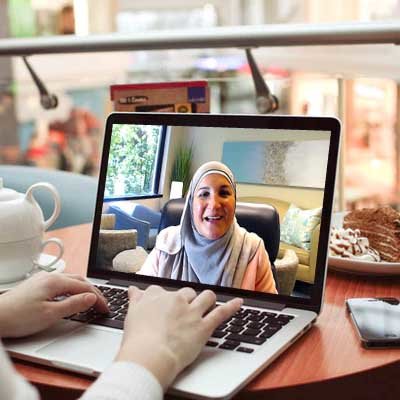We all face challenges on a daily basis- some of us may be currently facing more difficult ones than others. You may be the mother of several young children, feeling lost in the seemingly never-ending daily struggles of caring for your family. You may be unhappy in your marriage, feeling as though you and your spouse are on different wavelengths and unable to fix it. You may be struggling with feeling attracted to the same gender and unsure of what your future will look like without the possibility of having a partner to spend your life with. Why are you going through this? What is the point of the challenges we face? Why can’t we all just be happy all the time?
There is purpose & benefits to trials from both an Islamic perspective and a psychological one.
Allah (subhanahu wa ta’ala) tells us, “Do the people think that they will be left to say: We believe, and they will not be tried? But we have certainly tried those before them, and Allah will surely make evident those who are truthful, and He will surely make evident the liars.” (29:2-3) This ayah shows us that there are some things we have no control over while there are others that we do.
Here, Allah (subhanahu wa ta’ala) tells us a fact: We will all face struggles. Therefore, we have no control over that. Another thing we know is that Allah (subhanahu wa ta’ala) created each of us with strengths and weaknesses as He says, “And by the soul and He who proportioned it, and inspired it (with discernment of) its wickedness and righteousness. He has succeeded who purifies it, and he has failed who instills it (with corruption).” (91:7-10) But the key is how YOU choose to think about your struggle.
Our choices and how we choose to deal with situations also characterize us and shape our personalities. Every second and every choice we have in life is a test from Allah (subhanahu wa ta’ala). It is our choice which inclination, which part of our personality and which characteristics we want to develop and hone, as well as which we want to limit. The choices we make can positively or negatively impact us and our personalities. Some may argue that our personalities are ingrained within us and cannot be changed. However, look at the companions of the Prophet (sala Allahu ‘alayhi wa salam): Their tribal associations and disbelief were a core part of who they were, yet they then became from amongst those who were defined by Islam. It is not easy to face struggles with patience but this was a conscious choice.
Make the conscious choice to change the way you think about struggles. Ibn al-Qayyim (rahimahullah) said: “Ward off passing thoughts, for if you do not, they will become ideas. Ward off ideas, for if you do not, they will become desires. Fight them, for if you do not, they will become resolve and determination, and if you do not ward them off, they will become actions. If you do not resist them with their opposite, they will become habits and it will be difficult for you to get rid of them.” (Al-Fawaa’id by Ibn al-Qayyim, p. 33).
It is very normal for people to tend to think negatively but the brain is like a muscle. When you first start working out, it is so difficult; you can only exercise for a limited time and it feels awkward and uncomfortable. However, as you continue to practice, the exercise gets easier and more enjoyable. Right now, it may be natural for you to think negatively; however, with time and practice, positive thinking will become your new norm insha’Allah.
Practical Tips to Change Your Thoughts
1. Be aware of what you are saying to yourself.
It’s impossible to change something if you don’t know where the issue is. Try to keep a thought log as a record of your internal dialogue. Nothing impacts your sense of self worth more than the things you say to yourself.
2. Be aware of the emotion behind your thoughts.
Allah (subhanahu wa ta’ala) created each of us with emotions. There are many narrations from the Prophet (sala Allahu alayhi wa salam) wherein he speaks about emotions. In one hadith, it was reported, “We were on a journey with the Apostle of God, and he left us for a while. During his absence, we saw a bird called hummara with its two young and took the young ones. The mother bird was circling above us in the air, beating her wings in grief. When the Prophet returned, he said: “Who has hurt the feelings of this bird by taking its young? Return them to her.” (Muslim)
Just as Allah (subhanahu wa ta’ala) created us with emotions, such as anger and sadness, He also taught us ways to address these feelings. When dealing with difficult emotions, be honest with yourself about how you’re feeling. Allow yourself to be vulnerable and make du’aa to Allah (subhanahu wa ta’ala). There are multiple studies that have shown the benefits of prayer on one’s ability to cope, particularly during times of distress. Allah (subhanahu wa ta’ala) gives us a tool to help us cope as He says, “And We sent down in the Quran that which is healing and a mercy to those who believe: to the unjust it causes nothing but loss after loss.” {17:82}
3. Challenge your thoughts and consider a more helpful thought.
As you go through struggles and difficult situations in life, ask yourself, “What is the wisdom behind this decree of Allah? What is the benefit of facing this challenge?” Here are some positive and helpful thoughts you can consider as you go through this test. And as you consider these, think about how these thoughts make you feel stronger and happier:
1. Struggles are a means of raising your ranks in eyes of Allah (subhanahu wa ta’ala) and a sign that He (subhanahu wa ta’ala) loves you: Concerning trials, the Prophet (sala Allahu alayhi wa salam) said: “If Allah loves a people, He tries them, and whoever has patience will have patience, and whoever is anxious will be anxious.” (Ahmad)
2. Rather than thinking of this struggle as a punishment from Allah (subhanahu wa ta’ala), realize that it can actually be a mercy from Him: The Prophet (sala Allahu alayhi wa salam) said, “No fatigue, nor disease, nor sorrow, nor sadness, nor hurt, nor distress befalls a Muslim, even if it were the prick he receives from a thorn, but that Allah expiates some of his sins for that.” (al-Bukhari & Muslim)
3. Realize that demanding times are opportunities: The Prophet (sala Allahu alayhi wa salam) said, “The affair of the believer is amazing in that it is always good for him, and this is true only for a believer. If something joyful comes to him he gives thanks, and that is good for him. If something harmful comes to him, he is patient, and that is good for him.” (Muslim)
4. Challenging times can be a means toward increasing your reliance on Allah (subhanahu wa ta’ala): Through this struggle you can acquire both patience and gratitude because you realize that Allah (subhanahu wa ta’ala) is the best of planners despite any negative feelings you may be having about the struggle you’re enduring. You can develop gratitude because you realize that being dependent on Allah (subhanahu wa ta’ala) is such a weight off of your shoulders as Allah (subhanahu wa ta’ala) says, “And whoever relies upon Allah- then He is sufficient for him. Indeed, Allah will accomplish His purpose.” {65:3}
Challenge yourself to rethink your struggles as opportunities for growth. As you flex your “optimism muscles,” your days will become brighter and you will feel more confident, capable and invigorated insha’Allah. May Allah (subhanahu wa ta’ala) place barakah in your efforts and place joy and positivity in your life- both during times of ease and times of hardship. Ameen.



0 Comments